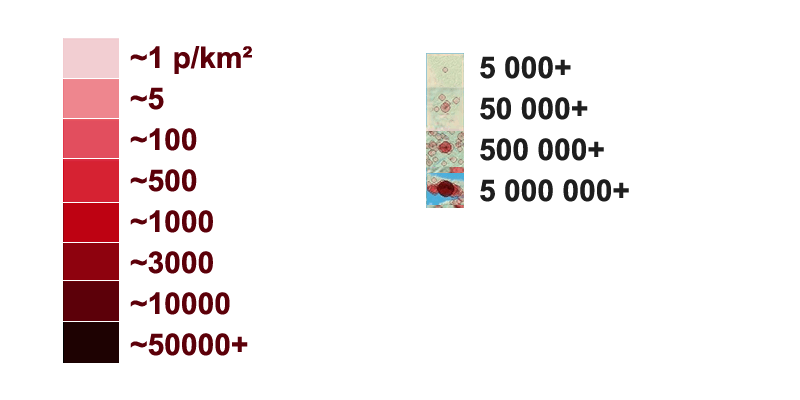Sources, Notices
1951c, 1961c, 1971c, 1981c, 1991c, 1996c, 2001c, 2006c, 2011c, 2014e. Legend: e-estimate, c-census, o-other, ..
* Unofficial, calculated population.
** In some cases boundaries changes also influence the comparability of the population data. Data is provided "as is" without warranty or any representation of accuracy, timeliness or completeness.
Terms of use.
[1] Sources
•
Statistics Canada In English, Français•
Canada: 20 Top Census Metropolitan Areas: Population from 1931. Demographia. 2001.•
Canada Year Book 1967. Statistics Canada. 2009. p184+•
Historical population and migration statistical data – Statistics Canada (Archived)•
Annual Estimates of Population for Canada, Provinces and Territories, from July 1, 1971 to July 1, 2014 Economics and Statistics Branch (Newfoundland & Labrador Statistics Agency)•
Population and dwelling counts, for Canada and census subdivisions (municipalities), 2011 and 2006 censuses Statistics Canada. January 13, 2014. Retrieved April 3, 2014. [2] City density map, generated by population.city using data provided to us by 1km.net website. Every circle is city with population over 5000.
Link
[3]
Population density map generated by instructions from daysleeperrr on reddig.
Link1.
Used data source is the Gridded Population of the World (GPW), v3 online at the the Socioeconomic Data and Applications Center (SEDAC) at Columbia University.
Link2.
Additional urban land cover: Extracted from Global Land Cover Characteristics Data Base Version 2.0 and Binary MOD12Q1 data on shadedrelief.com.
Link3 (PNG,0.5Mb).




 259°
259° 174°
174° 283°
283° 90°
90° 194°
194° 111°
111° 206°
206° 120°
120°